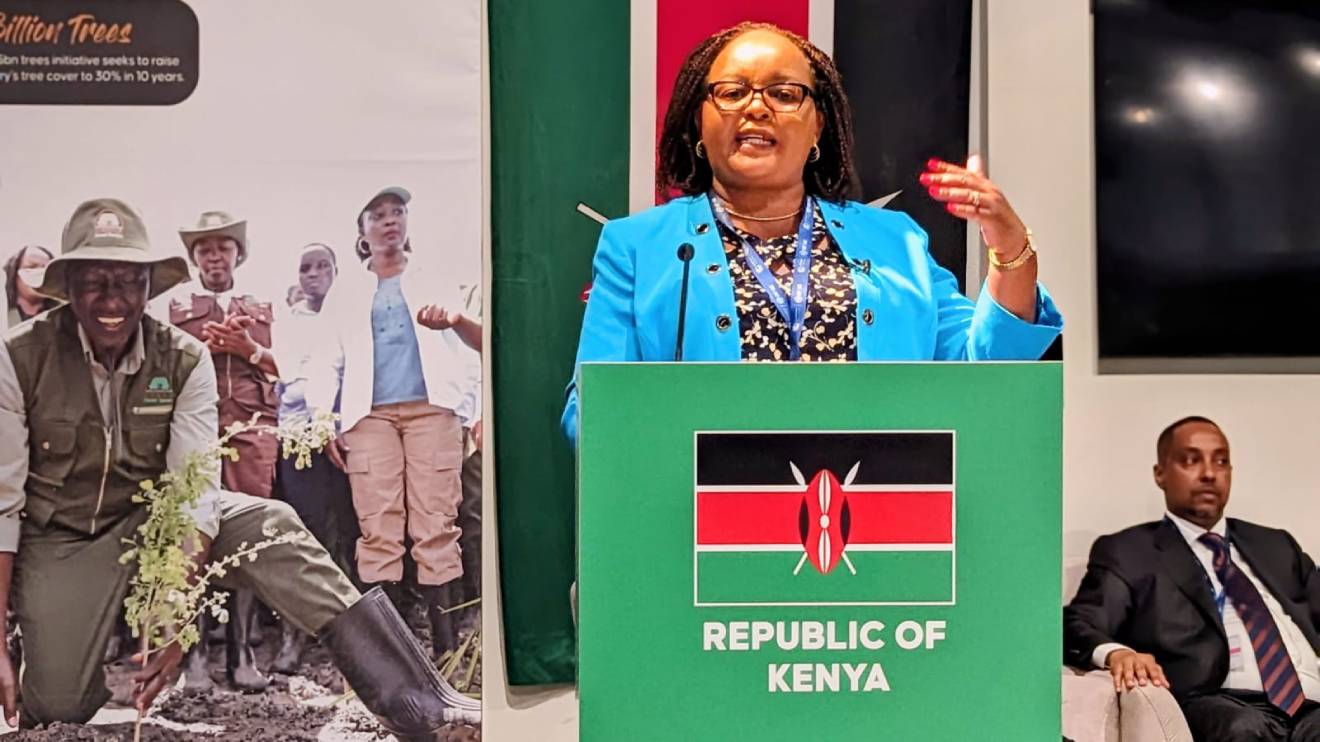Council of Governors (COG) Chair Anne Waiguru has called for coordinated regional strategies to deal with the far-reaching impacts of climate change in East Africa.
Speaking at a COP28 side event, Waiguru highlighted the devastating effects climate change has had on the region's agriculture, water resources, infrastructure, wildlife, and transport networks.
She noted the increasing frequency of extreme weather events like prolonged droughts, floods, and outbreaks of waterborne diseases.
"These disruptions have greatly affected lives and livelihoods," she said.
"Agriculture, our mainstay, water resources and infrastructure, wildlife, and transport networks are severely fractured. Public health impact is also evident through the spread of waterborne diseases."
Read More
Waiguru stressed that the trans-boundary nature of climate change demands a unified response from East African nations.
She expressed concern that while international mitigation efforts have progressed, concerted adaptation efforts have been slower.
"Individual adaptation actions by one country sometimes can generate and transmit risks to neighbouring countries, leading to emerging trans-boundary adaptation risks," she warned.
Emphasizing the need for collaboration, Waiguru highlighted the importance of adhering to the UN Framework Convention on Climate Change (UNFCC) and implementing binding commitments to emissions reductions.
She cited Kenya as an example, showcasing its alignment with the EAC legal regional frameworks through initiatives like the National Climate Change Response Strategy, the Climate Change Act, and the National Adaptation Plans.
Waiguru also lauded the role of Kenya's county governments in grounding climate action in communities and investing approximately Sh3 billion annually in support of local initiatives.
To build resilience and support livelihoods across East Africa, Waiguru recommended several key strategies:
Ecosystem-based approaches: This involves actively involving local communities and stakeholders in adaptation planning, leveraging traditional knowledge and practices.
Gender-sensitive planning: Implementing tools and approaches that address the specific vulnerabilities faced by different genders.
Investment in research and development: Expanding knowledge on climate change impacts and adaptation strategies tailored to the region's unique context.
Strengthening regional institutions: Empowering regional bodies like the EAC to play a more prominent role in coordinating climate action and facilitating knowledge exchange among member states.
Waiguru concluded her address by urging East African nations to work together to build a more resilient future for the region.
"As we endeavour to build resilience and livelihood support systems within the East African Community (EAC), let us consider Ecosystem-based Approaches through the strengthening collaboration among sectors responsible for managing ecosystems and those benefiting from ecosystem services," she concluded.










-1757663582.jpeg)
